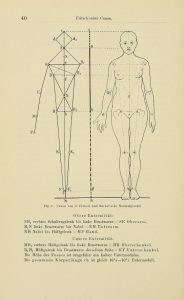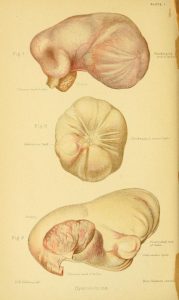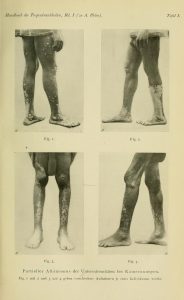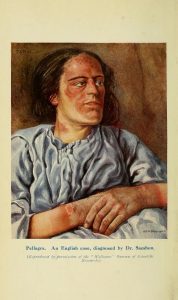The Medical Heritage Library (MHL), a digital resource on the history of medicine and health developed by an international consortium of cultural heritage repositories, has received funding in the amount of $275,000 from the National Endowment for the Humanities for its proposal “Medicine at Ground Level: State Medical Societies, State Medical Journals, and the Development of American Medicine and Society.“ Additional funding has been provided by the Harvard Library.
The project, led by the Countway Library’s Center for the History of Medicine, will create a substantial digital collection of American state medical society journals, digitizing 117 titles from 46 states, from 1900 to 2000, comprising 2,500,369 pages in 3,579 volumes. State medical society journal publishers agreed to provide free and open access to journal content currently under copyright. Once digitized, journals will join the more than 75,000 monographs, serials, pamphlets, and films now freely available in the MHL collection in the Internet Archive. State medical society journals will provide additional context for the rare and historical American medical periodicals digitized during the recently completed NEH project, Expanding the Medical Heritage Library: Preserving and Providing Online Access to Historical Medical Periodicals. Full text search is available through the MHL website. MHL holdings can also be accessed through DPLA (dp.la), and the Wellcome Library’s UK-MHL.
Five preeminent medical libraries, including three founding members of the MHL, are collaborating on this project: The College of Physicians of Philadelphia; the Countway Library of Medicine at Harvard University; the Center for the History of Medicine and Public Health at The New York Academy of Medicine; the Health Sciences and Human Services Library, University of Maryland, the Founding Campus (UMB); and the Library and Center for Knowledge Management at the University of California at San Francisco (UCSF).
State medical society journals document the transformation of American medicine in the twentieth century at both the local and national level. The journals have served as sites not only for scientific articles, but for medical talks (and, often, accounts of discussions following the talks), local news regarding sites of medical care and the medical profession, advertisements, and unexpurgated musings on medicine and society throughout the 20th century. When digitized and searchable as a single, comprehensive body of material, this collection will be a known universe, able to support a limitless array of historical queries, including those framed geographically and/or temporally, offering new ways to examine and depict the evolution of medicine and the relationship between medicine and society.
Project supporter and former president of the American Association for the History of Medicine, Professor of History Nancy J. Tomes, Stony Brook University, notes, “the value of this collection lies precisely in the insights state journals provide on issues of great contemporary interest. They shed light on questions at the heart of today’s policy debates: why do physicians treat specific diseases so differently in different parts of the country? Why is it such a challenge to develop and implement professional policies at the national level? How do state level developments in health insurance influence federal policy and vice versa? How do factors such as race, class, gender, and ethnicity affect therapeutic decision making? How have methods of promoting new therapies and technologies changed over time? These are issues of interest not only to historians but to political scientists, sociologists, and economists.
Not only will the state journals be of great use to researchers, but they also will be a great boon to teachers. I can easily imagine using the collection to engage medical students, residents, and practicing physicians in the conduct of historical research.”
Digitization will begin in August 2015; the project will be completed in April 2017.
About the Medical Heritage Library:
The MHL (www.medicalheritage.org) is a content centered digital community supporting research, education, and dialog that enables the history of medicine to contribute to a deeper understanding of human health and society. It serves as the point of access to a valuable body of quality curated digital materials and to the broader digital and nondigital holdings of its members. It was established in 2010 with funding from the Alfred P. Sloan Foundation to digitize 30,000 medical rare books. For more about the Medical Heritage Library, its holdings, projects, advisors, and collaborators, and how you can participate, see http://www.medicalheritage.org/.
About the NEH/Digital Humanities Program:
Created in 1965 as an independent federal agency, the National Endowment for the Humanities supports research and learning in history, literature, philosophy, and other areas of the humanities by funding selected, peer-reviewed proposals from around the nation. For more on the NEH Office of Digital Humanities visit http://www.neh.gov/odh/.









